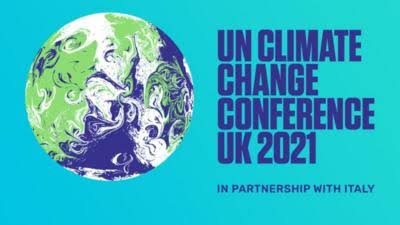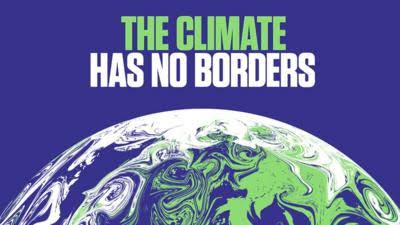By Andrea Barnett, Climate Action Port Stephens
What is COP 26?

COP26 is the 26th annual international summit organised by the peak decision-making body for climate, the United Nations Framework Convention on Climate Change, held in Glasgow. It is a two week series of discussions and conferences between global leaders to determine how to combat climate change by making commitments and coordinating global action. COP26 is viewed as a particularly important crossroad for climate action, as carbon emissions must plummet this decade if we are to avoid catastrophic climate impacts. In 2015 COP21 was held in Paris, where 195 countries signed a treaty to limit global warming to 1.5 degrees. COP26 needs to implement the Paris Agreement by getting countries to significantly reduce their emissions by 2030.
What is Australia doing?
Australia’s Federal government has only recently pledged to achieve net zero carbon emissions by 2050 but has not made any new commitment to hastening emissions reductions this decade, which is vital to avoiding catastrophic climate change. Scott Morrison’s appearance at COP26 was disappointing and confirms Australia’s status as the worst performing developed country on cutting emissions.
What does Australia need to do?
The Climate Council, Australia’s leading climate change communications organisation, recommends that Australia reduces its emissions by 75% by 2030 and achieve net zero emissions by 2035, and cease all new oil, gas and coal developments now to keep global warming below 1.5 degrees.
And the outcome of COP26?
The Glasgow Climate Pact is seen as a step forward, however current pledges to decarbonise will not limit temperature rises to under 2 degrees, and we want no more than a 1.5 degree rise from pre-industrial levels to avoid the worst of catastrophic climate change. It was a major disappointment that China and India refused to agree to a ‘phase out’ of coal, settling on a ‘phase down’. They believe that they need the additional time for their economies to benefit from fossil fuels like those of developed nations did over many generations.
A more promising sign was that participating countries acknowledged that emissions need to fall a lot faster than currently planned and an agreement to report emission reduction progress annually. Other significant commitments included ceasing deforestation, decreasing methane levels and trillion dollar pledges to fund clean energy projects. A major discussion centred on developed countries funding poorer countries to assist their climate resilience – this amount was doubled to 40 billion dollars a year by 2025, however a further agreement on loss and damage payments to poorer countries for the effects of climate change was not reached. These and other discussions and actions will be ongoing – COP 26 didn’t solve everything and the world needs to stay engaged in the process.

Covid and Climate – do they provide more answers than questions?
Have you ever considered the connections between our climate crisis, covid and the natural world? There are an increasing number of excellent studies from around the world on what we can learn from the pandemic for addressing climate change – serious governance failure is an obvious link.
As the effects of man’s relentless destructive actions continue, are these making us more vulnerable to future viruses under a warming planet? Surely it’s time we stopped seeing ourselves as separate from nature, but an intrinsic part of it. Here are some interesting perspectives:
- Coronavirus is a wake-up call: our war with the environment is leading to pandemics
- Australians report climate change as a bigger concern than COVID-19
- COVID-19 pandemic: the possible influence of the long-term ignorance about climate change
- Farhana Sultana (2021) Climate change, COVID-19, and the co-production of injustices: a feminist reading of overlapping crises, Social & Cultural Geography, 22:4, 447-460, DOI: 10.1080/14649365.2021.1910994
- How has the COVID-19 pandemic affected the climate change debate on Twitter? Maria L. Loureiro and Maria Alló. ECOBAS, University of Santiago de Compostela, Spain and University of A Coruña, Spain
COP26 and beyond – some highlights and lowlights:
- The Climate Council debunk the PMs speech
- Asia-Pacific groups back Australia’s signing of Glasgow Breakthrough green steel initiative at COP26
- Santos sponsor Australian Pavilion at COP26 – what message did this send to the international community?
- Major agreement on ending deforestation
- Greta Thunberg’s summary of COP26
- Australia gets the Colossal Fossil award
What about Island nations?
- Many countries, especially island nations, have the smallest effect on climate change yet are the ones likely to be most affected by inaction by the biggest polluters. To make this point, the Foreign minister of Tuvalu addresses Cop26 standing thigh-deep in sea water
- Barbados Prime Minister Mia Mottley’s defence of Small Island Developing States makes her a regional rock star. Listen to her speech.
Should governments leave it to the billionaires to deal with the climate crisis?
- Billionaire Jeff Bezos Takes Stage At COP26 To Pledge $2 Billion Towards Nature Conservation
- Can a Carbon-Emitting Iron Ore Tycoon Save the Planet?
- Will Solving Climate Change Make Elon Musk The World’s First Trillionaire?
- Why Elon Musk’s Climate Change Prize Is Empty and Worthless
What about developing countries?
- How Developing Countries Can Reduce Emissions Without Compromising Growth
- Developing countries and the renewable energy revolution
- The broken $100-billion promise of climate finance — and how to fix it
Any other solutions?
- Land clearing in NSW must end for Australia to meet its new COP26 deforestation pledge
- The Vast Majority of Carbon Offsets Do Not Help to Combat Climate Change
- Net zero is not enough – it’s Absolute Zero that’s needed!
- Supporting Carbon Capture and Storage slows progress on viable solutions and risks accomplishing nothing other than further expansion of the fossil fuel industry. Beyond Zero Emissions tells us why.
More questions?
- States and Territories are meeting targets so why is it important that the Federal government sets targets?
- Australian companies have been going off shore to invest in renewables for years. How can we keep them here?
- In his speech at COP26, Mr Morrison mistakenly said “global momentum to tackle China“.
After all that – it’s time for a smile!
‘When you’re trying to save the planet from a climate emergency and the Coalition from imploding, there’s only one man for the job. Huw Parkinson reimagines Barnaby Joyce as 1960s Batman in a bid to understand the National Party’s deliberations on climate policy’. Watch Natman on ABC’s in-depth YouTube channel.
Closer to home
- Join CAPS – Climate Action Port Stephens
- Climate Future on the Central Coast has put out a community plan
- Campaign for zero-emission homes
Further reading and resources
- COP26: 13 November – Day 12. So that’s a wrap!
- Untangling the climate mess
- Appetite for change Australia simply can’t ignore
- The Morrison government has announced a 2050 net zero commitment. Here’s a ‘to do’ list for each sector
- Satirical billboards mocking Australia’s climate change efforts appear in Glasgow
- The Road to Kunming is an excellent series published on The Guardian website ‘exploring the key issues and people involved in the Cop15 of the UN Convention on Biological Diversity.
- Read more about the UN Convention on Biological Diversity
